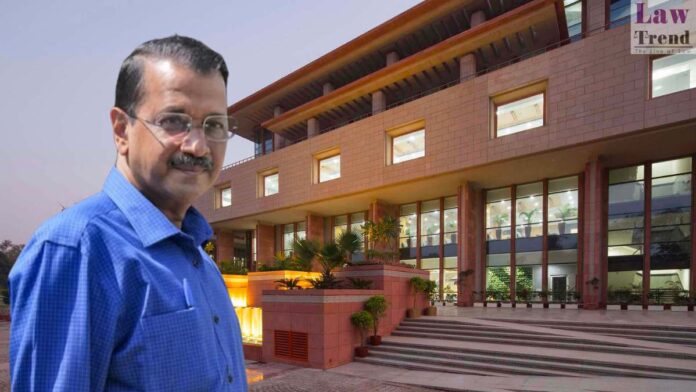The Delhi High Court on Friday opted not to advance the hearing date for a petition by Aam Aadmi Party (AAP) leader Arvind Kejriwal, which challenges a trial court’s decision to acknowledge a chargesheet against him in a money laundering case linked to the excise policy scandal. Justice Manoj Kumar Ohri confirmed that the hearing will proceed as scheduled on December 20, citing a full docket.
Kejriwal’s legal team had requested the court to move up the hearing date from the scheduled December 20. However, after the request was denied, they sought an order for the Enforcement Directorate (ED) to provide an advance copy of its response to Kejriwal’s petition. Justice Ohri instructed the ED’s counsel, “Whatever you file, give it to them also.”
Previously, on November 21, the High Court had declined to halt the trial court proceedings against Kejriwal, instead issuing a notice to the ED for a response on the former Delhi chief minister’s plea. Kejriwal’s petition contends that the trial court should not have taken cognisance of the chargesheet due to a lack of required sanction for his prosecution, arguing that he was a public servant at the time the alleged offenses were committed.
Solicitor General Tushar Mehta, representing the ED, argued that the necessary sanction to prosecute Kejriwal was duly obtained and that he would substantiate this claim with an affidavit. Kejriwal’s plea not only seeks to overturn the trial court’s July 9 decision but also aims to quash all proceedings in the case, highlighting that the prosecution proceeded without the mandatory sanctions stipulated under Section 197 of the Criminal Procedure Code (CrPC).
This section of the CrPC specifies that no court shall take cognisance of an offense alleged against a public servant unless prior sanction is obtained, a principle that Kejriwal’s defense argues was violated.
The charges against Kejriwal stem from accusations of irregularities in modifying the excise policy during his tenure, which allegedly extended undue favors to license holders. The controversial policy was implemented on November 17, 2021, and was rescinded by the end of September 2022 following corruption allegations.




